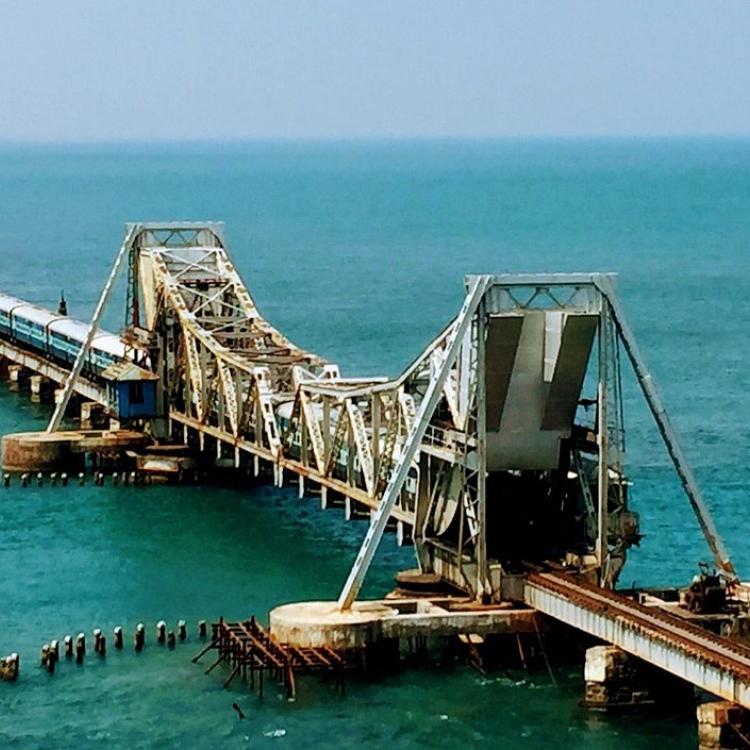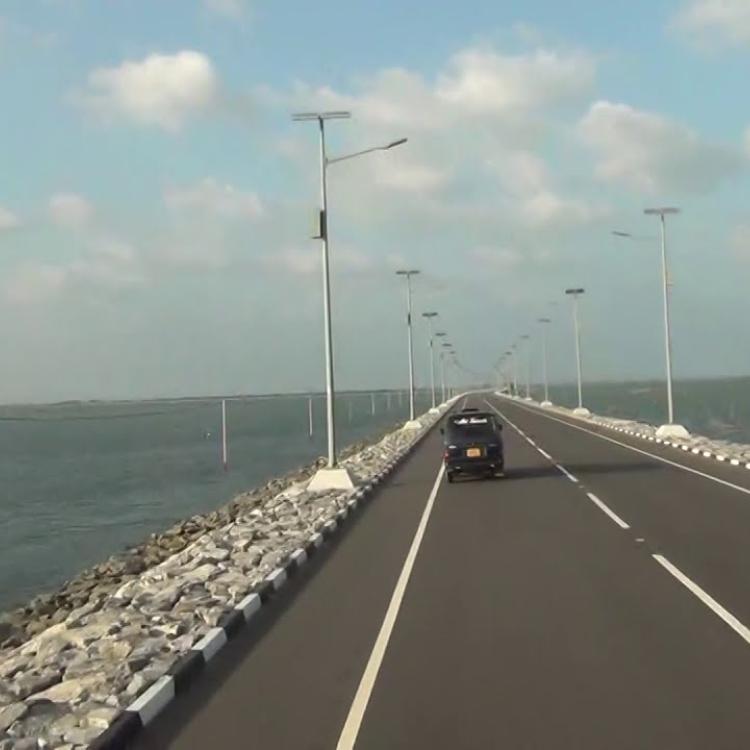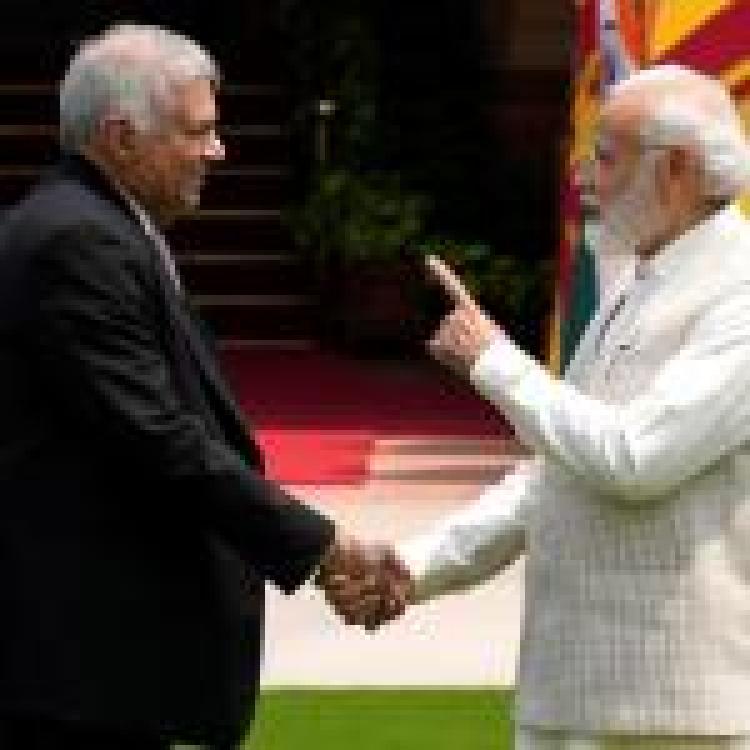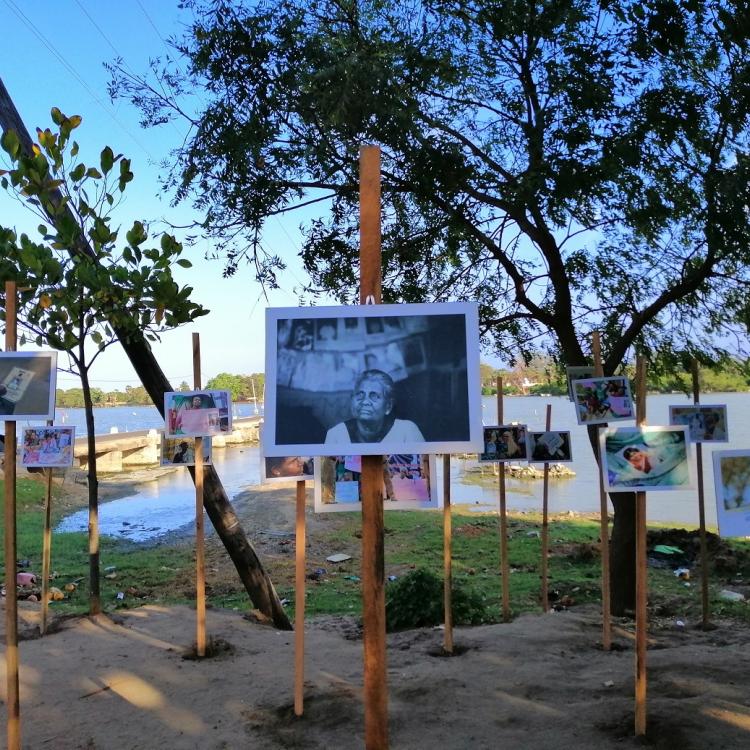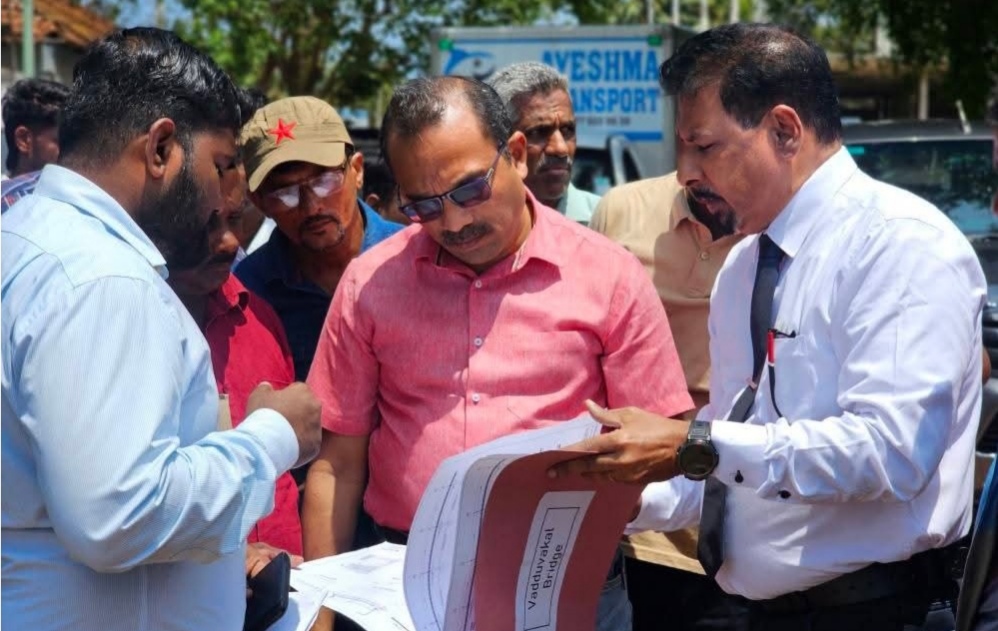
Sri Lanka’s Minister of Transport, Highways, Ports, and Civil Aviation, Bimal Rathnayake, announced this week that the design phase for a new bridge across the Nandikadal Lagoon in Mullaitivu has been completed, with construction due to commence soon.
The Vadduvakal Bridge, situated along the Mullaitivu–Paranthan road, holds deep and painful significance for Tamils. Originally built in the 1950s, the 440-metre structure has long served as a critical artery into Mullaitivu town. However, beyond that, the bridge and its surrounding waters became a site of unimaginable tragedy during the final stages of the 2009 Mullivaikkal genocide.
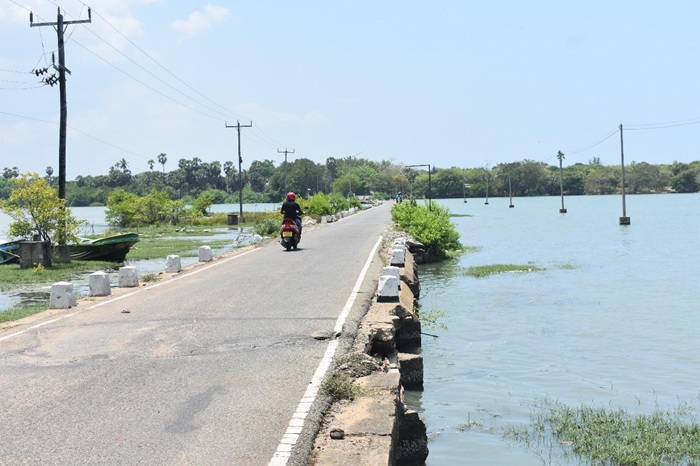
As government forces encircled the remaining Tamil civilian population, hundreds of thousands of people attempted to flee across the Nandikadal Lagoon towards Vadduvakal, desperately seeking safety. The area became littered with the bodies of those killed during the genocide at Mullivaikkal, with many perishing in the waters of the lagoon itself. Images from that period captured the horrific scale of the massacres, and to this day, Vadduvakal stands as a haunting testament to the atrocities committed against the Tamil people.
Despite its symbolic weight and its practical importance, the bridge has suffered from neglect for years, with local residents facing increasing difficulties—particularly during monsoon seasons, when poor road conditions exacerbate isolation.
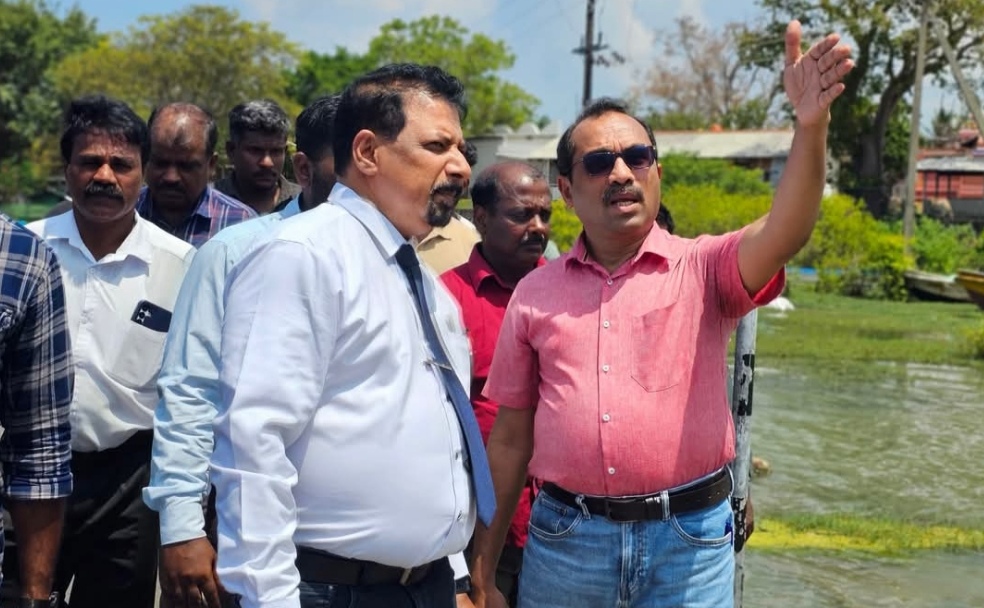
During his visit to the proposed construction site this week, Rathnayake stated that procurement processes are underway, and that construction is expected to begin immediately after finalisation. The project, which forms part of the 2025 national budget proposals, is estimated to cost Rs. 1,900 million, with an initial allocation of Rs. 1,000 million already earmarked.
Officials from the Road Development Authority and Vanni District MP Selvam Adaikalanathan accompanied the Minister during the site inspection.
While the government touts the new bridge as a step towards improving connectivity and development in Mullaitivu District, there is a deeper history attached to Vadduvakal. Tamil families and survivors, have also noted how any reconstruction must also confront the lingering legacy of state violence and the enduring demand for truth, justice, and accountability for the crimes committed in these very waters.

